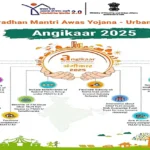What is the Registration Bill 2025?
The Registration Bill 2025 represents India’s most ambitious attempt to modernize property registration since independence. This proposed legislation aims to replace the 117-year-old Registration Act of 1908, bringing India’s property registration system into the digital age.
The bill, drafted by the Department of Land Resources under the Ministry of Rural Development, introduces a comprehensive online-first approach to property registration. It promises to eliminate the lengthy queues, excessive paperwork, and middleman dependency that have plagued India’s property registration system for decades.
Why This Bill Matters to You
Whether you’re a first-time homebuyer, an investor, or an NRI looking to invest in Indian real estate, this bill will fundamentally change how you register property. The current system often takes weeks or months to complete a simple property registration. The new system promises to reduce this to hours or days.
The bill also addresses critical issues like fraud prevention, transparency, and accessibility – making property registration safer and more reliable for all citizens.
Key Features That Will Transform Property Registration
1. Complete Digital Registration Process
The bill introduces an end-to-end digital registration system that eliminates the need for physical visits to registration offices in most cases.
Online Document Submission: You can submit all property-related documents through a dedicated online portal. This means no more taking time off work to visit registration offices during limited hours.
Electronic Registration Certificates: Instead of physical certificates that can be lost or damaged, you’ll receive tamper-proof electronic registration certificates that are instantly verifiable.
Digital Document Archives: All registered documents will be digitally archived, making them easily retrievable, shareable, and verifiable for future transactions or legal purposes.
2. Flexible Identity Verification Options
Unlike many digital systems that mandate Aadhaar, the Registration Bill 2025 offers multiple identity verification methods:
Aadhaar-Based Authentication: Users can choose to use Aadhaar for identity verification through OTP or biometric verification.
Alternative Identification Methods: For those who don’t have Aadhaar or prefer not to use it, the system accepts other officially valid documents and e-documents.
Biometric and Electronic Signatures: The bill enables the use of electronic signatures, biometric thumb impressions, and passport-size photographs for identification.
This inclusive approach ensures that no citizen is excluded from the digital registration process due to documentation issues.
3. Expanded Scope of Mandatory Registration
The bill significantly broadens the list of documents that require mandatory registration, closing loopholes in the current system:
- Agreements to Sell: Previously, many sale agreements operated in a legal gray area. Now they must be registered, providing better protection to buyers.
- Sale Certificates: Certificates from housing authorities, banks, and other institutions must be registered.
- Powers of Attorney: Property-related powers of attorney must be registered, preventing misuse.
- Instruments of Equitable Mortgage: Better protection for lenders and borrowers.
- Judicial Order-Based Instruments: Legal instruments based on court orders must be registered.
4. Streamlined Will Registration
The bill introduces special provisions for will registration that particularly benefit elderly citizens:
Electronic Will Registration: Wills can be registered online, making the process more accessible for elderly or mobility-impaired individuals.
Flexible Submission Options: Wills can be presented or deposited at any time, either in person or through authorized agents.
Sealed Cover Deposits: The option to deposit wills in a sealed cover with a Registrar protects testamentary intentions while preventing loss or manipulation.
5. Integration with Existing Systems
One of the most significant advantages of the new bill is its integration capabilities:
Land Records Integration: Seamless connection with land record databases like Bhoomi and Bhulekh allows instant verification of ownership history, mutation status, and property boundaries.
Income Tax Integration: Integration with PAN systems helps in tax compliance and fraud prevention.
Municipal Corporation Integration: Connection with property tax databases ensures comprehensive property information.
How the New System Will Work: A Step-by-Step Guide

For Property Buyers
- Document Preparation: Gather all required documents digitally
- Online Portal Access: Log in to the dedicated registration portal
- Document Upload: Submit all documents through the secure online system
- Identity Verification: Choose your preferred verification method (Aadhaar or alternative documents)
- Fee Payment: Pay registration fees online through the portal
- Digital Processing: The system processes your application with automated verification
- Electronic Certificate: Receive your registration certificate electronically
For Property Sellers
- Verification of Ownership: The system automatically verifies your ownership through integrated land records
- Document Preparation: Prepare and upload all required documents
- Identity Confirmation: Complete identity verification
- Transaction Approval: Approve the transaction digitally
- Legal Compliance: The system ensures all legal requirements are met
Processing Timeline
- Current System: 15-30 days (sometimes longer)
- New System: 1-3 days for standard transactions
- Express Processing: Same-day processing for urgent cases (where applicable)
Benefits for Different User Groups
For Individual Citizens
Time Savings: No more waiting in long queues or making multiple visits to registration offices.
Cost Reduction: Elimination of middleman fees and reduced travel costs.
Transparency: Clear tracking of application status and transparent fee structure.
Fraud Prevention: Digital verification and integrated systems reduce the risk of property fraud.
For NRIs (Non-Resident Indians)
Remote Registration: Complete property registration from anywhere in the world.
Document Verification: Easier verification of Indian property documents while abroad.
Trusted Transactions: Enhanced security features provide confidence in long-distance property transactions.
For Real Estate Professionals
Faster Deal Closure: Quicker registration process means faster deal completion.
Reduced Compliance Costs: Streamlined processes reduce administrative burden.
Better Client Service: Ability to provide real-time updates to clients about registration status.
For Senior Citizens
Home-Based Registration: Option to complete registration from home.
Simplified Process: User-friendly interface designed for non-tech-savvy users.
Agent Support: Provision for authorized agents to assist with the process.
Comparison: Old vs New System
| Aspect | Current System (1908 Act) | New System (2025 Bill) |
| Processing Time | 15-30 days | 1-3 days |
| Physical Visits | Multiple visits required | Optional/Not required |
| Document Format | Physical documents | Digital documents |
| Verification Method | Manual verification | Automated digital verification |
| Integration | Standalone system | Integrated with multiple databases |
| Fraud Prevention | Limited verification | Multi-layer digital verification |
| Accessibility | Office hours only | 24/7 online access |
| Cost | High (including middleman fees) | Reduced costs |
| Transparency | Limited visibility | Real-time status tracking |
Implementation Timeline and Current Status
Current Status (July 2025)
The Registration Bill 2025 is currently in the consultation phase. The Department of Land Resources has invited public suggestions and feedback on the draft bill.
Key Dates
- May 2025: Draft bill released for public consultation
- June 25, 2025: Deadline for public feedback (extended from original 30-day period)
- Late 2025: Expected parliamentary introduction
- 2026: Anticipated implementation (subject to legislative approval)
How to Submit Feedback
Citizens and stakeholders can submit suggestions via email at [email protected] using the prescribed format available on the official DOLR website.
Challenges and Considerations
Technical Challenges
Digital Infrastructure: Ensuring robust digital infrastructure across all states and union territories.
Cybersecurity: Protecting sensitive property and personal data from cyber threats.
System Integration: Seamlessly integrating with existing state-level systems that may have different technologies.
Implementation Challenges
Training Requirements: Training registration officers and staff on the new digital system.
Change Management: Helping citizens adapt to the new digital-first approach.
Backward Compatibility: Ensuring the new system can handle legacy documents and records.
Social Considerations
Digital Divide: Ensuring that citizens without digital literacy can still access the system.
Language Barriers: Providing support in multiple regional languages.
Rural Access: Ensuring reliable internet connectivity in rural areas.
Impact on Real Estate Market
Positive Impacts
Increased Transparency: Digital records and automated verification will increase buyer confidence.
Faster Transactions: Quicker registration will speed up the entire property transaction process.
Reduced Fraud: Better verification systems will reduce property-related fraud.
Market Efficiency: Streamlined processes will make the real estate market more efficient.
Potential Challenges
Initial Transition Period: Some disruption expected during the transition from old to new system.
Technology Adoption: Initial resistance from users accustomed to traditional processes.
System Reliability: Dependence on digital systems requires high reliability and backup systems.
Frequently Asked Questions
Q: Will the new system be mandatory for all property transactions?
A: Yes, once implemented, the new system will be mandatory for all property registrations covered under the bill. However, alternative verification methods ensure inclusivity.
Q: What happens to existing property documents registered under the old system?
A: Existing documents remain valid. The new system will likely include provisions for digitizing existing records over time.
Q: Can I still visit registration offices physically?
A: Yes, the bill allows for physical appearance before a registering officer in certain cases, particularly when public interest or fraud prevention is a concern.
Q: Are there any additional fees for online registration?
A: The bill states that fees will be fixed by the appropriate government and published in the official gazette. The aim is to reduce overall costs, not increase them.
Q: How secure will the digital system be?
A: The bill includes provisions for electronic signatures, biometric verification, and integration with multiple databases to ensure security. However, specific cybersecurity measures will be detailed in the implementation rules.
Q: Can NRIs use this system from abroad?
A: Yes, the digital nature of the system makes it accessible from anywhere in the world, particularly benefiting NRIs.
Preparing for the New System
For Property Buyers and Sellers
- Digitize Your Documents: Start converting physical documents to digital formats
- Ensure Aadhaar Validity: If you plan to use Aadhaar for verification, ensure it’s updated
- Gather Alternative ID: Keep alternative identification documents ready
- Learn Basic Digital Skills: Familiarize yourself with online processes
- Stay Informed: Keep track of implementation updates and training programs
For Real Estate Professionals
- Upgrade Technology: Invest in digital tools and infrastructure
- Staff Training: Prepare your team for the new digital processes
- Client Education: Educate clients about the upcoming changes
- System Integration: Prepare your internal systems for integration with the new platform
The Bigger Picture: India’s Digital Transformation
The Registration Bill 2025 is part of India’s broader digital transformation agenda. It aligns with initiatives like Digital India, JAM Trinity (Jan Dhan-Aadhaar-Mobile), and the push for a digital economy.
This transformation is expected to:
- Reduce corruption in property registration
- Improve ease of doing business rankings
- Attract more foreign investment in real estate
- Enhance tax compliance and revenue collection
- Create a more transparent and efficient property market
Looking Ahead: Future Implications
Short-term (1-2 years)
- Initial implementation challenges and learning curve
- Gradual adoption by citizens and professionals
- Pilot programs in select states or districts
Medium-term (3-5 years)
- Full nationwide implementation
- Integration with additional government systems
- Significant reduction in property-related disputes
- Improved ease of doing business metrics
Long-term (5+ years)
- Potential for blockchain integration for even greater security
- AI-powered fraud detection systems
- Seamless integration with smart city initiatives
- Model for other countries’ property registration systems
Conclusion
The Registration Bill 2025 represents a watershed moment in India’s property registration history. By replacing a century-old system with a modern, digital-first approach, it promises to make property registration faster, more transparent, and more accessible for all citizens.
While implementation challenges are inevitable, the long-term benefits for property buyers, sellers, and the real estate market as a whole are substantial. The bill’s inclusive approach, with multiple verification options and provisions for different user groups, shows a thoughtful consideration of India’s diverse population.
As India moves towards this digital future, staying informed and prepared will be crucial for all stakeholders in the real estate ecosystem. The Registration Bill 2025 is not just about digitizing an old process – it’s about creating a foundation for a more transparent, efficient, and trustworthy property market that serves all Indians better.
This article is based on the draft Registration Bill 2025 as of July 2025. Final provisions may vary based on parliamentary discussions and amendments.
Stay Updated: For the latest updates on the Registration Bill 2025, visit the official Department of Land Resources website or consult with qualified legal professionals.









